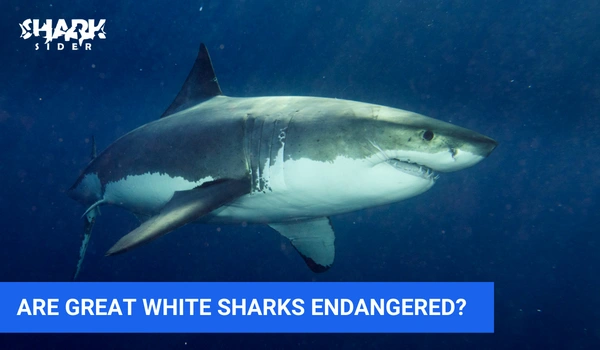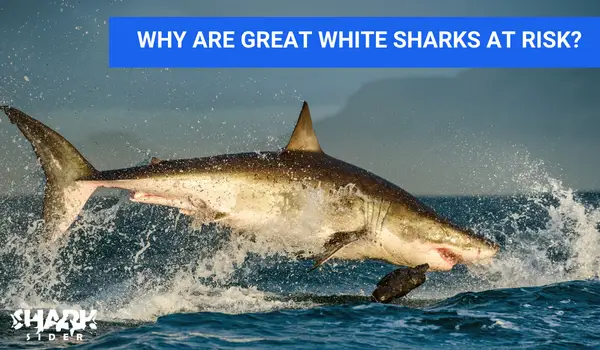The Great White shark is one of the world’s most iconic species, featured in many books and movies. These apex predators have been feared by humankind since ancient times due to their fearsome teeth and size. Even today, they are shaping our collective understanding of marine biology as researchers continue to unravel their life histories and behavior. But despite all this attention, not much is known about the current status of the population – are Great White sharks endangered?
In this blog post, we’ll delve into what makes these creatures so fascinating and explore both sides of the argument around whether or not Great White sharks are endangered. So if you’ve ever wanted to learn more about how humans interact with great white sharks – and why they still fascinate us even after all these years – keep reading!

Great White sharks are carnivorous predators, primarily targeting fish, other sharks, rays, and marine mammals. They prefer coastal waters with temperatures between 12-24 °C (53.6-75.2 °F) but have been found in much warmer and cooler depths as well. Generally speaking, they tend to be solitary animals that feed alone or in small groups -though there are some documented cases of cooperative hunting.
Great white sharks can be found in almost all coastal waters around the world and are particularly abundant along the coasts of North America, South Africa, Australia, New Zealand, and Japan. They are generally found close to shorelines as well as offshore in deeper waters.
How many Great White sharks are left?
The exact number of great whites is uncertain due to the difficulty of tracking them; however, estimates suggest there are between 3,000 and 5,000 individuals in the wild.
Are Great White sharks endangered?
The answer to this question depends on which source you look at – or more specifically, which criteria are used to define “endangered”. The World Wildlife Fund considers the Great White sharks vulnerable, while the International Union for Conservation of Nature (IUCN) lists them as “near threatened”. However, some scientists argue that the number of individuals in the wild is too low to sustain a healthy population and thus, should be considered “endangered.”
Why are Great White sharks at risk?

Great white sharks are threatened by a variety of human activities, including pollution and climate change. Overfishing is also a major problem as their preferred prey has become increasingly scarce in many regions. Additionally, they are at risk of becoming entangled in fishing nets or being caught as bycatch, leading to further population declines.
Conservation efforts for Great White sharks
Various organizations, including the World Wildlife Fund, are taking action to protect great whites from extinction. Some of these initiatives include tagging and tracking individuals, protecting their habitats from human activity, and raising awareness about their importance in maintaining healthy marine ecosystems.
What would be the consequences of losing an apex predator such as a Great White shark from our oceans?
The loss of an apex predator like a great white shark would have serious repercussions on the rest of the ocean’s ecosystem. Without its top predator, populations of smaller fish and other animals may boom unchecked, leading to overgrazing and disruption of food webs. In addition, sharks play an important role in balancing the overall health of our oceans by controlling populations of other species and providing essential nutrients through their waste.
Conclusion
The Great White shark is an iconic species that has been feared by humankind since ancient times but is also admired as an important part of our marine ecosystem. Although the exact population size is unknown, it is clear that conservation efforts are needed to ensure its long-term survival.
By understanding more about their behavior, habitats, and threats to their populations, we can work together to protect this apex predator and ensure that it continues to thrive in our oceans for many years to come.
